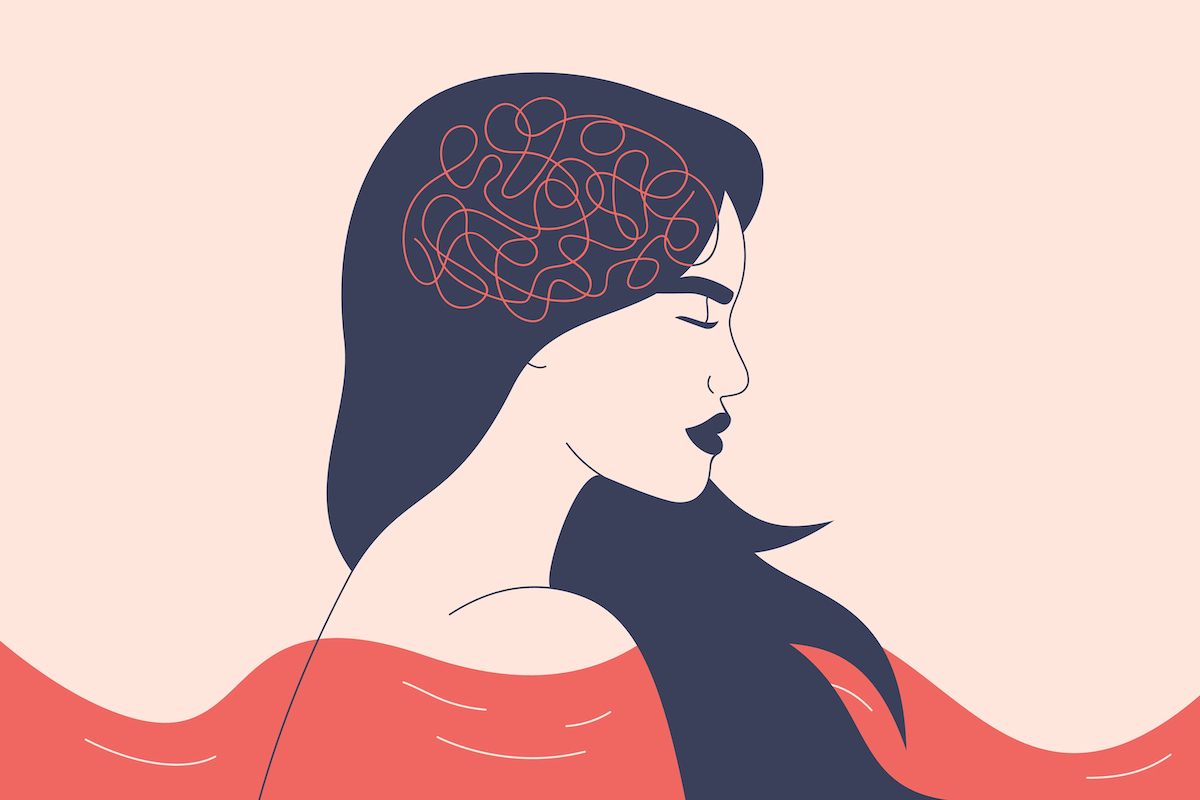User blogs

In today's fast-paced and technology-driven world, it's becoming increasingly difficult to disconnect and take a break from our digital devices. We are constantly bombarded with notifications, emails, and social media updates, making it challenging to switch off and unwind. However, as a mental health counselor in Bhopal, I have seen firsthand the negative impact of constant digital exposure on individuals' mental well-being.
The constant need to be connected and plugged in can lead to a phenomenon known as "digital overload." This overload can result in feelings of anxiety, stress, and even depression. Our brains are not designed to handle the constant influx of information and stimulation that technology provides, and this can have a detrimental effect on our mental health.
This is where the concept of a "digital detox" comes in. A digital detox refers to taking a break from all digital devices, including smartphones, laptops, and social media, for a designated period. It allows individuals to unplug, disconnect, and focus on other aspects of their lives, such as spending time with loved ones, engaging in hobbies, or simply taking a walk in nature.
So, how exactly can a digital detox improve your mental well-being? Let's take a look at some of the benefits:
1) Reduces stress and anxiety: Constant digital exposure can lead to information overload, causing our brains to constantly process and analyze information. This can lead to feelings of stress and anxiety. Taking a break from technology can give our brains a much-needed rest and reduce these overwhelming feelings.
2) Improves sleep quality: The blue light emitted from digital devices can disrupt our sleep patterns, making it difficult to fall asleep and stay asleep. By disconnecting from technology, we allow our brains to wind down and prepare for a good night's sleep, leading to improved overall sleep quality.
3) Increases mindfulness: Mindfulness refers to being present in the moment and fully engaged in our surroundings. The constant distraction of technology can make it challenging to be mindful. A digital detox can help individuals be more present and aware of their thoughts, feelings, and surroundings.
Also Read: Psychiatrist in Bhopal
4) Encourages face-to-face interactions: In today's digital age, it's easy to rely on technology for communication and social interactions. However, nothing can replace the value of face-to-face interactions. A digital detox can encourage individuals to connect with people in person, leading to more meaningful and fulfilling relationships.

Anxiety is a common mental health
issue that affects millions of people worldwide. It can manifest in various
forms, such as excessive worrying, panic attacks, and physical symptoms like
restlessness and difficulty breathing. While it is normal to experience anxiety
from time to time, it can become a problem when it starts to interfere with our
daily lives.
If you are someone who struggles with
anxiety, know that you are not alone. There are effective ways to manage
anxiety in your daily life, and seeking help from a psychiatrist in Bhopalcan provide you with the necessary
support and guidance. Here are five proven ways to manage anxiety and improve your
overall well-being:
1) Practice
Mindfulness:Mindfulness is the act of being fully present in the moment and paying
attention to your thoughts and feelings without judgment. It can help you
become more aware of your anxious thoughts and learn to accept them without
getting overwhelmed. Incorporating mindfulness techniques like deep breathing,
meditation, and yoga into your daily routine can help reduce anxiety symptoms
and improve your overall mental health.
2) Exercise
Regularly:Exercise has been proven to be an effective way to manage anxiety. Physical
activity releases endorphins, also known as "feel-good" hormones,
which can improve your mood and reduce stress and tension. Regular exercise can
also help you sleep better, which is crucial for managing anxiety. Aim for at
least 30 minutes of physical activity per day, whether it's going for a walk,
jogging, or joining a fitness class.
Also Read: OCD Treatment in Bhopal
3) Limit
Caffeine and Alcohol Intake:Caffeine and alcohol are known to worsen anxiety symptoms.
Caffeine is a stimulant that can increase heart rate and cause jitters, while
alcohol is a depressant that can affect your mood and sleep patterns. Limiting
your intake of these substances can help reduce anxiety and promote better
mental health.
4) Create a
Support System:Having a strong support system can make a significant difference in
managing anxiety. Surround yourself with people who understand and support you,
whether it's friends, family, or a therapist. Talking about your feelings and
concerns with someone you trust can help alleviate anxiety and provide you with
a sense of comfort and understanding.
5) Seek
Professional Help:If your anxiety is significantly impacting your daily life,
it is essential to seek professional help. A psychiatrist in Bhopalcan provide you with a
proper diagnosis and develop a personalized treatment plan to manage your anxiety.

As we navigate through the
complexities of life, we often encounter challenges that can trigger feelings
of anxiety. While it is normal to experience occasional bouts of anxiety, for
some individuals, it can become a debilitating disorder that significantly
impacts their daily lives. According to the World Health Organization, an
estimated 275 million people worldwide suffer from anxiety disorders, making it
the most prevalent mental health condition globally.
In Bhopal, a city in central India,
the prevalence of anxiety disorders is no different. As a psychiatrist in Bhopal, I have seen firsthand
the impact of anxiety on individuals and their loved ones. In this blog post, I
aim to shed light on anxiety disorders, their symptoms, and coping strategies.
Understanding
Anxiety Disorders:
Anxiety disorders are a group of
mental health conditions characterized by persistent and excessive worry, fear,
and apprehension. These feelings are often intense, overwhelming, and can
interfere with daily activities and relationships. There are several types of
anxiety disorders, including generalized anxiety disorder, panic disorder,
social anxiety disorder, and phobias.
Symptoms of anxiety disorders can
vary from person to person, but some common signs include excessive worry,
restlessness, difficulty concentrating, irritability, muscle tension, and
difficulty sleeping. These symptoms may also manifest physically, such as
headaches, stomachaches, and fatigue.
Coping
Strategies for Anxiety Disorders:
If you or someone you know is
struggling with anxiety, it is essential to seek help from a mental health
professional, such as a psychiatrist in Bhopal. They can provide a proper
diagnosis and create a personalized treatment plan. Along with therapy and
medication, here are some coping strategies that can help manage anxiety
disorders:
1) Practice
relaxation techniques:Deep breathing, meditation, and yoga are effective
techniques to calm the mind and reduce anxiety.
2) Exercise
regularly:Physical activity releases endorphins, which can improve mood and reduce stress
and anxiety.
3) Maintain
a healthy lifestyle:Eating a well-balanced diet, getting enough sleep, and
avoiding alcohol and drugs can help manage anxiety.
4) Identify
triggers:It is essential to identify the situations or thoughts that trigger anxiety and
find ways to manage or avoid them.
Also Read: Sleep Disorder Treatment in
Bhopal
5) Seek
support:Talking to a trusted friend or family member about your feelings can provide
comfort and support. Joining a support group can also help you connect with
others who understand what you are going through.

As a psychiatrist in Bhopal, I have seen firsthand
the impact that anxiety can have on a person's life. It is a common mental
health condition that affects millions of people worldwide, yet it is often
overlooked or misunderstood. While some may associate anxiety with constant
worrying or panic attacks, there are actually many surprising signs of anxiety
that often go unnoticed. In this blog post, I want to shed light on five of
these signs that you might be ignoring.
1) Physical
symptoms
When we think of anxiety, we often
think of the emotional and psychological toll it can take. However, anxiety can
also manifest itself in physical symptoms such as headaches, muscle tension,
and stomach problems. These symptoms are often dismissed as being caused by
other factors, but they can actually be a sign of underlying anxiety. If you
have been experiencing unexplained physical symptoms, it is worth considering
if anxiety could be the root cause.
2)
Perfectionism
While being detail-oriented and
striving for excellence can be positive traits, they can also be signs of
anxiety. People with anxiety often have a constant need to be perfect and fear
making mistakes or being judged by others. This can lead to excessive
self-criticism and a never-ending cycle of trying to meet unrealistic
expectations. If you find yourself constantly striving for perfection and
feeling anxious when you fall short, it may be a sign that you are struggling
with anxiety.
3) Social
withdrawal
Anxiety can also cause people to
withdraw from social situations. This may be due to a fear of being judged or
feeling overwhelmed in social settings. It can be easy to dismiss this behavior
as being introverted, but if you find yourself avoiding social interactions and
feeling anxious at the thought of them, it may be a sign of underlying anxiety.
It is important to address this behavior as social support can be crucial in
managing anxiety.
Also Read: OCD Treatment in Bhopal
4)
Procrastination
We all procrastinate from time to
time, but for someone with anxiety, it can be a coping mechanism. The fear of
failure or not meeting expectations can lead to avoidance and procrastination.
This can create a vicious cycle as the longer tasks are put off, the more
anxious a person may become about completing them. If you find yourself
constantly putting off tasks and feeling anxious about them, it may be a sign
of underlying anxiety.

As a psychiatrist in Bhopal, I have seen firsthand
the impact that anxiety can have on a person's life. It is a common mental
health condition that affects millions of people worldwide, yet it is often
overlooked or misunderstood. While some may associate anxiety with constant
worrying or panic attacks, there are actually many surprising signs of anxiety
that often go unnoticed. In this blog post, I want to shed light on five of
these signs that you might be ignoring.
1) Physical
symptoms
When we think of anxiety, we often
think of the emotional and psychological toll it can take. However, anxiety can
also manifest itself in physical symptoms such as headaches, muscle tension,
and stomach problems. These symptoms are often dismissed as being caused by
other factors, but they can actually be a sign of underlying anxiety. If you
have been experiencing unexplained physical symptoms, it is worth considering
if anxiety could be the root cause.
2)
Perfectionism
While being detail-oriented and
striving for excellence can be positive traits, they can also be signs of
anxiety. People with anxiety often have a constant need to be perfect and fear
making mistakes or being judged by others. This can lead to excessive
self-criticism and a never-ending cycle of trying to meet unrealistic
expectations. If you find yourself constantly striving for perfection and
feeling anxious when you fall short, it may be a sign that you are struggling
with anxiety.
3) Social
withdrawal
Anxiety can also cause people to
withdraw from social situations. This may be due to a fear of being judged or
feeling overwhelmed in social settings. It can be easy to dismiss this behavior
as being introverted, but if you find yourself avoiding social interactions and
feeling anxious at the thought of them, it may be a sign of underlying anxiety.
It is important to address this behavior as social support can be crucial in
managing anxiety.
Also Read: OCD Treatment in Bhopal
4)
Procrastination
We all procrastinate from time to
time, but for someone with anxiety, it can be a coping mechanism. The fear of
failure or not meeting expectations can lead to avoidance and procrastination.
This can create a vicious cycle as the longer tasks are put off, the more
anxious a person may become about completing them. If you find yourself
constantly putting off tasks and feeling anxious about them, it may be a sign
of underlying anxiety.

Schizophrenia is a complex mental
disorder that affects approximately 20 million people worldwide. Despite its
prevalence, there are still many misconceptions and myths surrounding this
condition. These myths often lead to stigma and discrimination against
individuals with schizophrenia, making it difficult for them to seek help from
a psychiatrist in Bhopaland receive proper
treatment. In this blog post, we will debunk the 5 most common myths about
schizophrenia to promote a better understanding of this disorder.
Myth #1:
Schizophrenia is a rare disorder.
One of the most common myths about
schizophrenia is that it is a rare disorder. In reality, schizophrenia is not
as uncommon as people think. According to the World Health Organization, it
affects about 1% of the global population. This means that there are millions
of people living with schizophrenia, and it is not as rare as many believe.
Myth #2: People
with schizophrenia have multiple personalities.
Many people confuse schizophrenia
with dissociative identity disorder (DID), where a person has multiple distinct
identities or personalities. However, this is not the case with schizophrenia.
People with schizophrenia do not have multiple personalities, but they may
experience hallucinations, delusions, and disorganized thinking. These symptoms
can make it difficult for them to distinguish between what is real and what is
not.
Myth #3:
Schizophrenia is caused by bad parenting or a traumatic event.
There is a common misconception that
schizophrenia is caused by bad parenting or a traumatic event. However,
research has shown that genetics and environmental factors play a significant
role in the development of schizophrenia. While a traumatic event or stressful
life circumstances may trigger symptoms, they are not the sole cause of
schizophrenia.
Also Read: Mental Health Counselor in Bhopal
Myth #4:
People with schizophrenia are violent and dangerous.
One of the most damaging myths about
schizophrenia is that individuals with this disorder are violent and dangerous.
In reality, people with schizophrenia are no more likely to be violent than the
general population. However, they may become agitated or aggressive if they are
experiencing a psychotic episode. It is essential to understand that violence
is not a symptom of schizophrenia, and individuals with this disorder are more
likely to be victims of violence rather than perpetrators.
Myth #5:
Schizophrenia cannot be treated.
There is a common misconception that
schizophrenia cannot be treated, and individuals with this disorder will never
recover. However, with proper treatment and support, people with schizophrenia
can lead fulfilling lives. Treatment options include medication, therapy, and
support groups.

Eating disorders are complex mental
health conditions that affect millions of people worldwide. According to the
National Eating Disorders Association, approximately 20 million women and 10
million men in the United States will experience an eating disorder at some
point in their lives. In India, the prevalence of eating disorders is also on
the rise, with a reported 2.8 million individuals suffering from anorexia
nervosa and 2.2 million individuals suffering from bulimia nervosa. As a psychiatrist in Bhopal, I have seen firsthand
the devastating effects of eating disorders on individuals and their families.
In this blog post, I will discuss the psychology behind eating disorders, their
causes, consequences, and the importance of seeking proper care.
The
Psychology of Eating Disorders:
Eating disorders are not just about
food and weight; they are complex psychological disorders that involve
distorted thoughts, emotions, and behaviors. Individuals with eating disorders
often have a negative body image and an intense fear of gaining weight, which
leads them to engage in extreme behaviors such as restrictive dieting, binge
eating, or purging. These behaviors become a way for them to cope with
underlying emotional issues such as low self-esteem, perfectionism, trauma, or
a need for control.
Causes of
Eating Disorders:
There is no single cause of eating
disorders, but rather a combination of biological, psychological, and
environmental factors. Genetics play a significant role, as individuals with a
family history of eating disorders are more likely to develop one themselves.
Psychological factors such as low self-esteem, body dissatisfaction, and
perfectionism can also contribute to the development of an eating disorder.
Environmental factors, such as societal pressure to be thin, a history of
trauma or abuse, and cultural norms, can also play a role.
Also Read: OCD Treatment in Bhopal
Consequences
of Eating Disorders:
Eating disorders can have serious
physical and emotional consequences. The most severe eating disorder, anorexia
nervosa, has the highest mortality rate of any mental illness. Individuals with
anorexia nervosa often have a dangerously low body weight, which can lead to
malnutrition, organ failure, and even death. Bulimia nervosa, characterized by
binge eating followed by purging, can lead to electrolyte imbalances,
gastrointestinal issues, and dental problems. Binge eating disorder, the most
common eating disorder, can lead to obesity, high blood pressure, and heart
disease.
Schizophrenia is a mental disorder
that affects approximately 1% of the population worldwide. It is a complex
condition that can have a significant impact on an individual's thoughts,
emotions, and behavior. As a psychiatrist in
Bhopal, I have seen firsthand the challenges that individuals with
schizophrenia face and the importance of support from their loved ones. In this
blog post, we will explore the causes of schizophrenia and discuss ways to
support those affected by this disorder.
The exact cause of schizophrenia is
still unknown, but research suggests that a combination of genetic,
environmental, and neurobiological factors may contribute to its development.
Studies have shown that individuals with a family history of schizophrenia are
at a higher risk of developing the disorder. Additionally, exposure to certain
environmental factors such as prenatal infections, malnutrition, and
psychosocial stressors may also play a role in the development of schizophrenia.
One of the most challenging aspects
of schizophrenia is its impact on an individual's ability to think clearly and
distinguish between what is real and what is not. People with schizophrenia may
experience hallucinations, delusions, disorganized thinking, and difficulty
expressing emotions. These symptoms can be distressing for both the individual
and their loved ones, and it is crucial to provide support and understanding.
Here are
some ways to support those affected by schizophrenia:
1. Educate yourself: The first step
in supporting someone with schizophrenia is to educate you about the disorder.
Learn about the symptoms, treatment options, and how you can help your loved
one manage their symptoms.
2. Be patient and understanding:
People with schizophrenia may have difficulty communicating and may withdraw
from social interactions. It is essential to be patient and understanding, even
if their behavior seems unusual or confusing.
3. Encourage treatment: As a psychiatrist in Bhopal, I cannot stress enough the
importance of seeking treatment for schizophrenia. Medications, therapy, and
support groups can help individuals manage their symptoms and improve their
quality of life.
4. Be a good listener: Individuals
with schizophrenia may have a lot on their minds, and it is essential to listen
to them without judgment. Allow them to express their thoughts and feelings
without interruption.
5. Offer practical support:
Schizophrenia can make it challenging for individuals to perform daily tasks
such as cooking, cleaning, and managing finances. Offering practical support,
such as helping with household chores or managing their medications, can be a
great help.
Also Read: Schizophrenia Treatment in Bhopal
As a psychiatrist in
Bhopal, I have encountered numerous patients struggling with mental health
diseases. These diseases can range from anxiety and depression to more severe
conditions like schizophreniaand bipolar disorder. While there are various factors that
contribute to the development of mental health diseases, one aspect that cannot
be ignored is genetics.
Genetics play a significant role in
determining an individual's susceptibility to mental health diseases. Studies
have shown that if a person has a family history of a particular mental health
disorder, they are more likely to develop the same condition. For example, if a
person's parent or sibling has schizophrenia, their risk of developing the
disorder increases by 10%. This risk further increases if both parents have a
history of the condition.
But how exactly do genetics influence
mental health diseases? It all comes down to our DNA. Our DNA contains genes
that control the production of proteins responsible for various bodily
functions, including brain function. Any changes or mutations in these genes
can alter the production of these proteins, leading to an increased risk of
developing mental health diseases.
One of the most well-known examples
of this is the COMT gene. This gene regulates the production of an enzyme
called catechol-O-methyltransferase, which breaks down dopamine in the brain.
Dopamine is a neurotransmitter that plays a crucial role in regulating mood, motivation,
and pleasure. Studies have found that individuals with a specific variant of
the COMT gene are more likely to develop schizophrenia as the enzyme's reduced
activity leads to an excess of dopamine in the brain.
Similarly, the serotonin transporter
gene (5-HTT) has also been linked to mental health diseases. This gene controls
the production of a protein that transports serotonin, another neurotransmitter
responsible for regulating mood, sleep, and appetite. Variations in this gene
have been associated with an increased risk of developing depressionand anxiety disorders.
However, it is essential to note that
genetics alone do not determine the development of mental health diseases.
Environmental factors, such as stress, trauma, and substance abuse, also play a significant role.
In fact, studies have shown that individuals with a genetic predisposition for
mental health diseases are more likely to develop the condition if they
experience adverse life events.
So, what does this mean for
individuals with a family history of mental health diseases? Firstly, it is
crucial to understand that having a genetic predisposition does not mean one
will inevitably develop the condition. It only means that there is an increased
risk.
Nutrition plays a crucial role in our
overall health, including our mental health. The food we eat not only nourishes
our body but also has a significant impact on our mood, emotions, and behavior.
In recent years, there has been a growing interest in the connection between
nutrition and mental health, and many studies have shown that a healthy diet
can have a positive effect on our mental well-being.
As a psychiatrist in
Bhopal, I have seen firsthand the impact of nutrition on mental health. In my
practice, I have noticed that patients who follow a balanced and nutritious
diet tend to have better mental health outcomes compared to those who have a
poor diet. This observation is supported by numerous studies that have linked
nutrition to various mental health conditions such as depression, anxiety, and
even schizophrenia.
One of the ways nutrition affects
mental health is through the production of neurotransmitters in the brain.
Neurotransmitters are chemical messengers that regulate mood, emotions, and
behavior. Certain nutrients, such as omega-3 fatty acids, B vitamins, and amino
acids, are essential for the production and functioning of these
neurotransmitters. A deficiency in these nutrients can lead to imbalances in
the brain, causing mood swings, irritability, and other mental health issues.
Also Read: Mental Doctor in
Bhopal
Moreover, our gut health also plays a
crucial role in our mental well-being. The gut is often referred to as the
"second brain" because it contains millions of neurons that
communicate with the brain through the nervous system. The gut and brain are
connected through the gut-brain axis, and any disruption in this communication
can lead to mental health problems. A healthy gut microbiome, which is the
community of bacteria in our gut, is essential for maintaining good mental
health. A diet rich in fiber and probiotics can help promote a healthy gut
microbiome, leading to improved mental health.
Also Read: OCD Treatment in
Bhopal
On the other hand, a poor diet, high
in processed and sugary foods, has been linked to an increased risk of mental
health issues. Studies have shown that a diet high in processed foods, such as
fast food and refined carbohydrates, can increase the risk of depression and
anxiety. These foods can cause inflammation in the body, including the brain,
which can affect mood and behavior. Additionally, a diet high in sugar can lead
to blood sugar spikes and crashes, causing mood swings and irritability.



